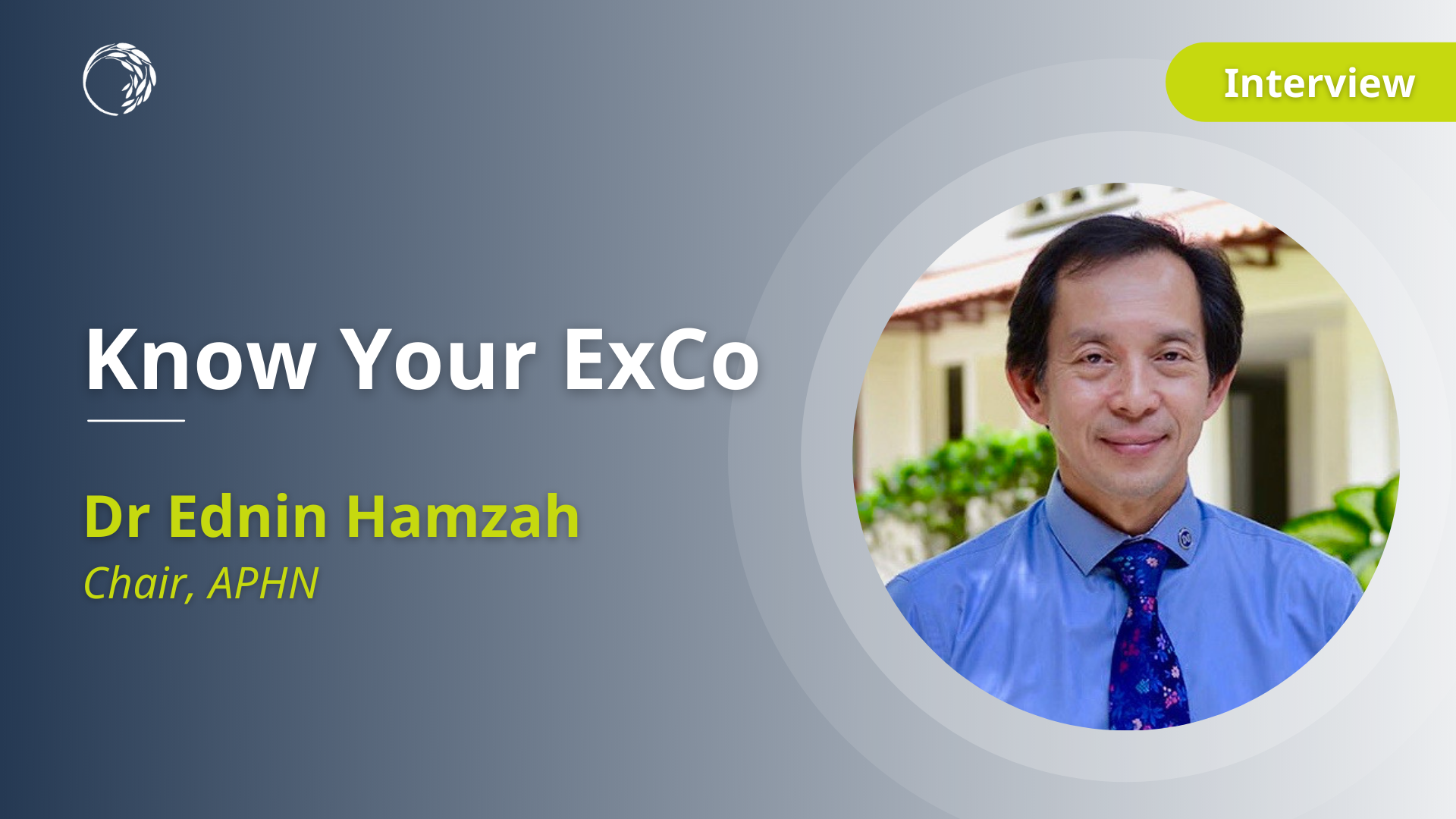
Dr Ednin Hamzah is a physician by profession and a coffee drinker by nature. He is the CEO of Hospis Malaysia, a position he has held since 1997 upon his return from the United Kingdom. Ednin graduated in Medicine at the University of Newcastle upon Tyne and trained and worked in General Practice.
Clinically he heads the largest community palliative care service in Malaysia. He is involved with teaching palliative care at both under and postgraduate levels with several universities. Nationally he has been involved in palliative care, pain, and cancer control issues both with the Ministry of Health and several non-government organisations.
He is currently the Chair of the Asia Pacific Hospice Palliative Care Network.
Tell us more about your background. How did you get into Palliative Care and what made you stay?
From my early years in Malaysia, I was transported to the United Kingdom at the age of 18 and from then embarked on an exhilarating journey of discovery. Medicine was only part of it. Training in Newcastle upon Tyne, I started training in internal medicine but found that the initial excitement in deductive diagnosis and adrenaline-driven medicine turned into disillusionment as I realised that this was not really addressing the overall needs of the patient and their families. I then trained in General Practice ( Family Medicine ) and settled in a career in the community up in the North East of the UK. Throughout all this, I was also involved with several palliative care patients and I have strong recollections of many of them. Through a chance meeting with the Chair of Hospis Malaysia, I was offered an opportunity to be the CEO / Medical Director of the community palliative care organisation which I took up in 1997 after spending a year in the UK, preparing for the work. Though there were significant barriers in starting such a service which I modeled after my experience in UK, I was greatly encouraged and supported through the supportive network that I found through meeting first Dr Cynthia Goh and Dr Rosalie Shaw in Singapore. There are certainly huge differences between working in family medicine in the UK and palliative care in Malaysia. One of the key reasons for staying in palliative care has been my exposure to the work of the Asia Pacific Hospice Palliative Care Network and the impact that has had on communities in the regions and the strong friendships that have developed in our collective work. At some point, I’ll probably require palliative care, will I be able to access it?
What can you tell us about your role in establishing Hospis Malaysia?
This is my 24th year at Hospis Malaysia and from a small 4 person team working in a 2 room office donated by a hospital, we are now the largest community palliative care service with a team of 35 caring for about 2000 patients yearly. We also have a busy programme of education, training and public advocacy. The success of an organisation is based on the values and mission that are embraced by the workforce and I would like to think that we have assembled a team the believes in the values that underpin palliative and patient-centred care. So much of the growth is due to the outcomes felt by our patients, their families and the wider community who in turn has provided us with the support that has made Hospis Malaysia what it is now.
What do you hope to achieve in your capacity as APHN’s Chair?
This is APHN’s 20th year and it is an honour to be entrusted with such a position following on from my colleague Cynthia Goh. Palliative care is evolving and Covid 19 has shown the world the fragilities in life and the importance of human connections. The World Health Organisation has iterated strong support for palliative care yet in many areas of the Asia Pacific, there is much work to be done. A new generation of leaders needs to be energised to deal with new challenges in palliative care within our region. Addressing advocacy, building capacity, education, training as well as research are key elements. APHN has been a conduit for regional exchanges and APHN could provide such a platform as well as contribute to the global agenda in palliative care. Whilst the newer generation of palliative care workers look towards the evidence-based framework, there is much to be gained from the collective wisdom and aspects of the hidden curriculum which the APHN family can provide.
How would you describe your leadership style?
Strategic and transformative. Allow individuals to visualise the best version of themselves and harness them to be more than they can be as individuals and you will develop a team.
What keeps you going when the going gets tough?
…the tough gets going. It is impossible not to find a positive in the most adverse condition. There is always a solution, you may just have to work better to achieve it.
‘When we are no longer able to change a situation, we are challenged to change ourselves’ by Viktor Frankl
Tell us something that people may not know about you.
Mysteries are a facet of human existence and are to be explored….
Look out for our next mini interview with our Vice-Chair, A/Prof Ghauri Aggarwal!
